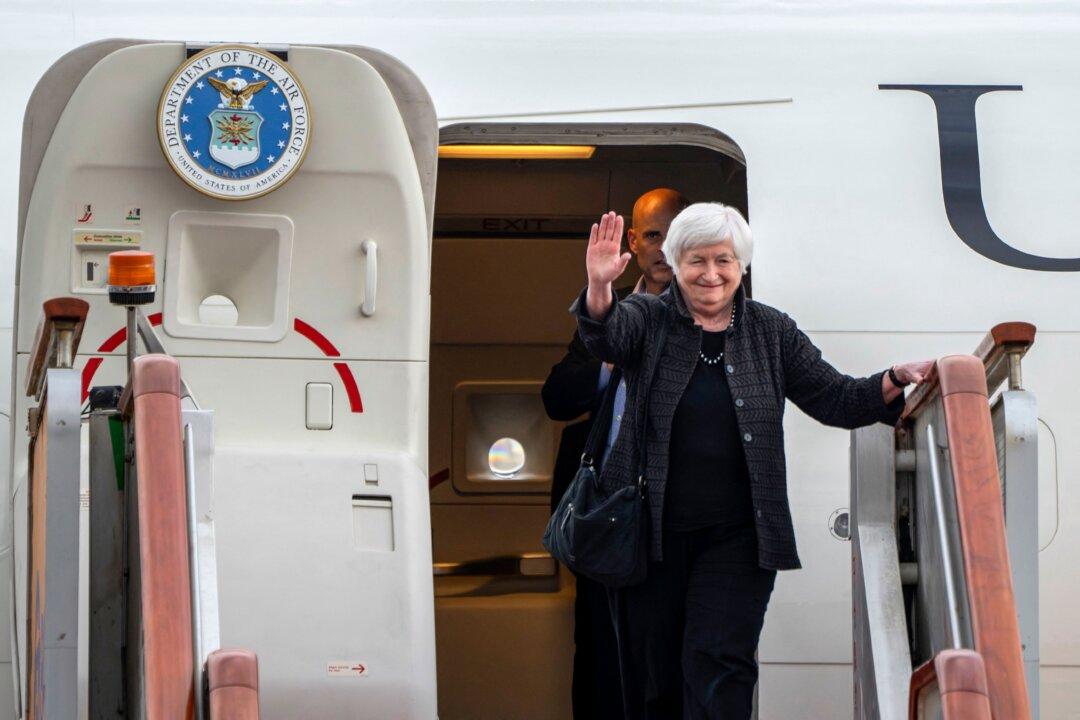U.S. Treasury Secretary Janet Yellen arrived in China on July 6 to begin a four-day visit that has drawn concerns over the Biden administration’s continued effort to engage the regime in Beijing.
Ms. Yellen was greeted by Chinese officials led by Yang Yingming, director general of China’s Finance Ministry’s international cooperation department, as well as U.S. Ambassador to China Nicholas Burns, at Beijing Capital International Airport, according to China’s state-run media.




